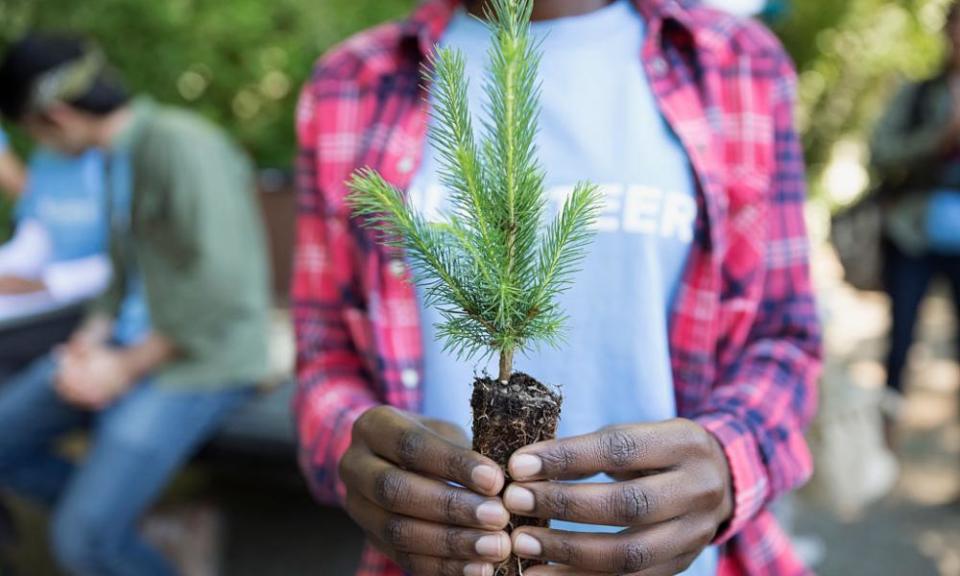Climate crisis, tree planting and new left economics

Scotland’s first minister, Nicola Sturgeon, has acknowledged that our planet faces a climate emergency. Inextricably linked to this is the growing ecological crisis. We must not let Brexit derail us from tackling these global challenges head-on. Whatever the outcome of the political uncertainties, we need robust, binding targets for the recovery of Scotland’s natural environment to safeguard both nature and people. This is why we have come together from across Scottish society to ask the first minister to bring forward a new Scottish environment act.
Ensuring our world is rich in nature is the best insurance we have against dangerous climate heating. Protecting, restoring and enhancing Scotland’s natural environment would help limit temperature rises and help us adapt to changes that we cannot avoid. It would also give us so much more.
Everyone has the right to a clean and healthy environment. Nature enriches people’s lives. It cleans our air and water, improves our physical and mental health, underpins Scotland’s global image and exports, and improves the places we live. For all these reasons, we are calling for a Scottish environment act that makes Scotland’s vision to be an environmental world leader a reality.
Andrew Bachell Chief executive officer, John Muir Trust
Lang Banks Director, WWF Scotland
Martin Baxter Chief policy adviser, Institute of Environmental Management and Assessment
Peter Cairns Director, Scotland: The Big Picture
Carol Evans Director, Woodland Trust Scotland
Ian Findlay Chief officer, Paths for All
Angus Hardie Director, Scottish Community Alliance
Dr Deborah Long Chief officer, Scottish Environment Link
Sandy Luk Chief executive officer, Marine Conservation Society
Anne McCall Director, RSPB Scotland
Brendan Paddy Director, Ramblers Scotland
Jo Pike Chief executive, Scottish Wildlife Trust
Mike Robinson Chief executive, Royal Scottish Geographical Society
Jason Reeves Head of policy and communications, Chartered Institute of Ecology and Environmental Management
Ruchir Shah Head of policy, Scottish Council for Voluntary Organisations
Simon Skinner Chief executive officer, National Trust for Scotland
• Congratulations to Patrick Barkham on his fascinating feature, (Reforestation of the tropics is in full swing – will it solve the climate crisis?, 19 June), illustrated with a delightful photograph of two little Kenyan girls carrying seedlings. It ought to be compulsory reading for everyone, especially climate-change deniers. I would love to believe that those who can plant trees will redouble their efforts, and those who cannot will applaud and encourage this lifesaving measure.
The feature includes the fact that about 15bn trees are felled every year, dwarfing replacement efforts. Another cause for lament is the possibility of the building of a third runway at Heathrow. Aeroplanes emit carbon dioxide and ozone faster and in greater quantities than road traffic. If we keep launching more and more of these metal monsters into the air, the best tree planters in the world will be unable to compete. Wonderful work in reforestation is at risk of being nullified.
Penelope Maclachlan
Hanwell, London
• Patrick Barkham’s survey of tree planting oddly made no mention of Ecosia’s search engine, which has so far planted 60m trees from the advertising revenue generated by internet searches made by its 7 million users. It’s worth keeping a Google search engine for the rare occasion when Ecosia doesn’t do the trick, but it’s an effective way of planting trees.
Charles Young
Oxford
• Would the UK do more to prevent “climate apartheid” (Report, 26 June) and help poor countries if it diverted some of its aid money to reduce carbon emissions and fossil fuel use at home? If aid were diverted to restore the subsidy to home solar panels in Britain (Home solar panel installations fall by 94% as subsidies cut, the guardian.com, 5 June) would there be more long-term benefit to developing countries that are being harmed by our carbon?
I write about Mozambique, which was recently hit by two cyclones made worse by climate change, and which caused huge damage. Mozambique needs money to rebuild, but, unfortunately, if Britain will not increase spending on the climate crisis, it might benefit most if the aid was spent in the UK.
Dr Joseph Hanlon
London
• I was staggered at the narrowness of vision reflected in Andy Beckett’s piece on new left economics (There is now an alternative, Long read, 25 June). What is it about the global climate and biodiversity crisis that the left doesn’t get? It’s 23.59 for goodness sake – if the best we can do is some Portakabins in Preston we truly are doomed. Equity and human rights must be at the heart of any sustainable development strategy. Those who will suffer most are those who live on the margins socially and geographically. If the new left economics doesn’t begin by integrating this fact into a truly global perspective, then we need to turn elsewhere.
Neil Blackshaw
Barbizon, France
• Join the debate – email guardian.letters@theguardian.com
• Read more Guardian letters – click here to visit gu.com/letters
• Do you have a photo you’d like to share with Guardian readers? Click here to upload it and we’ll publish the best submissions in the letters spread of our print edition

 Yahoo News
Yahoo News 